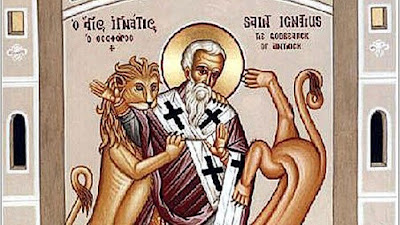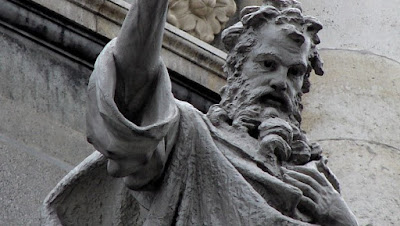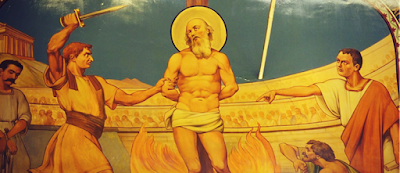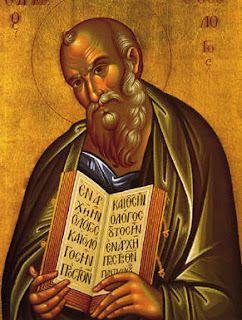Saint Ignatius of Antioch, Bishop and Martyr

Memorial - October 17th On this day, the Church commemorates one of the most significant Apostolic Fathers of Christian antiquity, who lived less than a century after Christ. Saint Ignatius of Antioch, (c. 35 – 107) a disciple of the Apostle John, was the third Bishop of Antioch (a city in present day Turkey) from 70 to 107, the date of his martyrdom. Tradition holds Ignatius, as a child, was blessed by Our Lord. He is patron of the Catholic Church in the eastern Mediterranean and North Africa. Ignatius is credited with coining the term 'Catholic' in reference to the universal Church. "Wherever Jesus Christ is", he observed, "there is the Catholic Church" (Smyrnaeans, 8:2). He is best known for the seven letters he wrote to six early Christian communities and to Saint Polycarp, Bishop of Smyrna, defending orthodoxy, urging unity and warning against heresy as he journeyed to his death from Antioch to Rome — a treasure passed down from the 1st century



